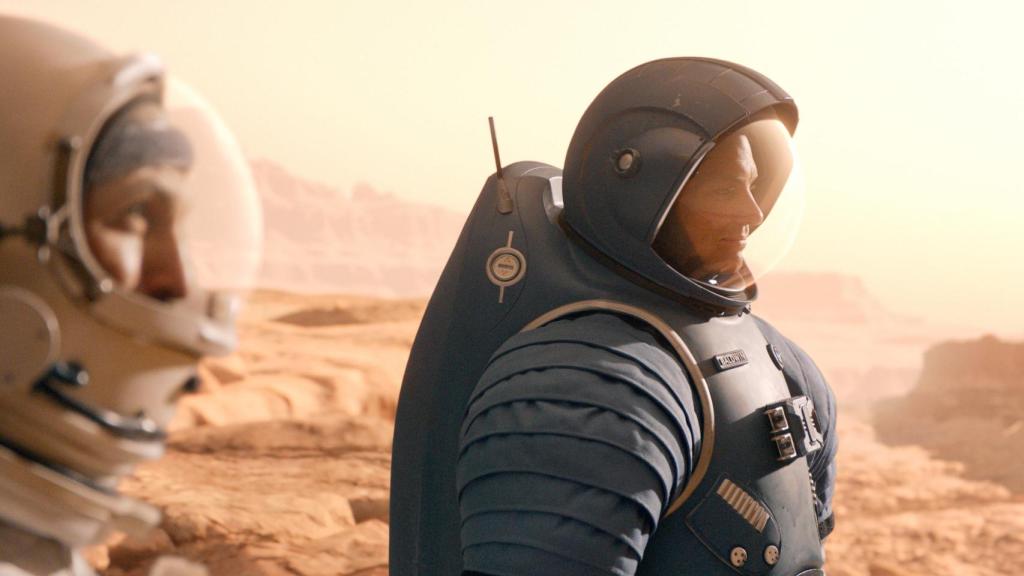
'Para toda la humanidad' ha cerrado su tercera temporada dejando a los espectadores con la boca abierta. Otra vez.
The science fiction series that was ahead of Polaris Dawn: civilian astronauts and a hotel on a space station
From the creator of 'Battlestar Galactica', it is the best series on Apple TV+. It has been renewed for a fifth season and has a spin-off in the works.
The SpaceX Polaris Dawn mission has successfully carried out the first private spacewalk this Thursday, September 12, at 12:00 peninsular time, in which tech mogul Jared Isaacman and aerospace engineer Sarah Gillis will go down in history as the first commercial astronauts to do so.
A historic milestone, no doubt, but one that if the space race initiated with the moon landing in 1969 had continued, would have happened 30 years earlier. At least, that's what is suggested in the series For All Mankind.
Created by Ronald D. Moore (Battlestar Galactica), it is conceived as a uchronia in which the space race never ended because the Soviets were the first to reach the moon.
This is a game-changer, as the United States would then keep those efforts alive by allocating a large part of its budget in the following decades to an investment in scientific and technological development, rather than in weapons and wars.
This results in a myriad of political, military, economic, and social implications, such as the immediate entry of women into the space race (not in defense of equality, but to be the first at something), which radically alters the course of the series and History within the fiction.

Joel Kinnaman in 'For All Mankind'.
The series expertly explores all these implications through its seasons, which always begin with a montage reminiscent of Forrest Gump, showing alleged archive images of what has occurred on a sociopolitical and global level in the time between each season.
In this alternate reality, for instance, John Lennon survives an assassination attempt, Prince Charles marries Camilla Parker-Bowles in 1981, the United States has its first female president in 1992, and global warming has slowed down due to humanity shifting from fossil fuels to nuclear fission throughout the decade.
Tráiler - 'Para toda la humanidad' temporada 1 - Apple TV+
Regarding the advances in private space exploration, it begins in the late 80s, driven by a technology billionaire in 1987, with the opening of the first orbital hotel in the early 90s, a time when there's already a space colony on Mars. This hotel, by the way, is named Polaris.
All of this makes For All Mankind a fascinating space uchronia, and also an exciting, addictive, and often thrilling series. Its season finales are nail-biters.
With four seasons aired, a fifth on the way and a spin-off in the works, this is a great moment to discover what many (myself included) consider the best science fiction series since Battlestar Galactica.
'For All Mankind' is available on Apple TV+.
*This article has been automatically translated using artificial intelligence



